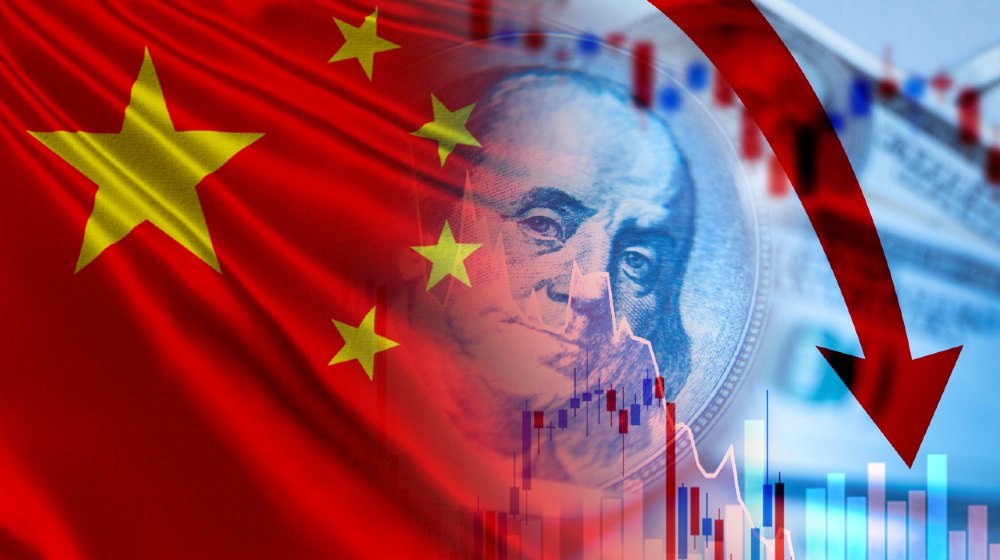Breaking News
House OKs Bill Delisting China Stocks Who Refuse Audit

On Wednesday the US House of Representatives approved a bill delisting China stocks who refuse audit rules from US regulators. The bipartisan measure received unanimous approval from Congress. It will now move to the White House for signing by President Trump, who is likely to sign the bill into law. Prior to the vote, the US Senate passed the bill last May.
RELATED: Senate Passes Bill That Could Delist Chinese Stocks
The bill attempts to address China’s resistance in allowing American auditors. US auditors spent decades trying to inspect Chinese companies’ operations. When the bill becomes law, Chinese companies will have three years to comply. If they do not, a trading ban on their stocks will take effect. Afterward, the exchange boards can start delisting China stocks that refuse audit rules set by the SEC. Or, they have two other options. They can either privatize their equity or move to a non-US exchange.
The Holding Foreign Companies Accountable Act
The bill, titled The Holding Foreign Companies Accountable Act, will ban stocks of foreign companies from any U.S. exchange if they won’t comply or allow audits from the U.S. Public Accounting Oversight Board for three years in a row. The bill actually applies to all non-US companies. However, the sponsors had Chinese companies in mind when they drafted it. These include major companies such as Alibaba, Baidu, China Mobile, JD, China Telecom, PetroChina, Pinduoduo, and others. Also, the act requires companies to disclose ownership or control by a foreign government.
Want to see the full article
Click here to read the full article on thecapitalist.com
Sponsors for the Senate legislation are Senators John Kennedy (R-La) and Chris Van Hollen (D-Md). Van Hollen issued a statement saying that American investors “have been cheated out of their money after investing in seemingly-legitimate Chinese companies that are not held to the same standards as other publicly listed companies.” Kennedy accused Chinese companies of using U.S. exchanges to “exploit” Americans. “The House joined the Senate in rejecting a toxic status quo,” he said in a statement.
Investor Protection Against Chinese Firms Who Refuse Audit
Major Chinese firms managed to get funding from US investors over the years. However, they ignore a basic American investment protection mechanism. Chinese companies do not allow American regulators to visit and audit operations. Without the ability to perform checks, American investment can likely disappear. This happens in cases of major fraud, or if the company implodes due to mismanagement.
House Rep. Brad Sherman (D-Ca) said that “Without this bill, the Chinese have been just stonewalling us, and we certainly shouldn’t make it easier for a Chinese company to get American capital than an American company.” Sherman is a certified public accountant who spearheads legislation requiring improved auditing. Meanwhile, the American Securities Association lauded the bill’s passage. They confirmed the bill’s necessity for implementation. It protects Americans from “fraudulent companies controlled by the Chinese Communist Party.”
Bill’s Intent
The House legislators clarified the bill’s intent. While it does not have the force of law, it does direct the SEC to ensure the measure’s implementation. At the same time, it requires that it doesn't harm American companies doing business in China. As such, these companies use Chinese accounting firms for part of their annual audit. Meanwhile, critics of the bill say it could hurt US companies operating in China.
Marc Iyeki, former Asia-Pacific listings head at the New York Stock Exchange, said the bill helps a lot. If signed into law, Washington gets better leverage when negotiating with Beijing. The provisions can potentially hasten the resolution of the issue over audit inspections. Therefore, it can lead to an agreement that allows Chinese firms to maintain their U.S. listings.
Chinese Firms in US Stock Exchanges
There are around 210 firms with Chinese headquarters listed in various US exchanges. Delisting China stocks would cause a huge $2 trillion capital flight. The SEC’s auditing watchdog, the Public Company Accounting Oversight Board (PCAOB), spent decades trying to get Chinese companies to open their public companies for audit inspections. The whole time, Beijing cites state-secret laws as its reason for resisting. Iyeki said: “Three years is a lot of time. You have two interlocked economies and financial markets, and it would be difficult to untangle them completely. There is a good benefit to both sides to have a resolution that both sides can live with.”
Bills that take a stand against China’s business and trade practices are popular on both sides of the political fence. Both parties support Trump’s often hardline stance against China. In fact, many believe that the incoming administration may continue the stance. But, it would do so in a less antagonistic manner. For now, the threat of delisting China stocks if they don’t agree to American audit processes will have to do.
Watch the CNBC TV report where the White House says Trump will sign a bill that could delist Chinese companies from U.S. exchanges:
Do you think that President Trump should sign the Holding Foreign Companies Accountable Act into law? Let us know if you agree or disagree by submitting your comments below.












